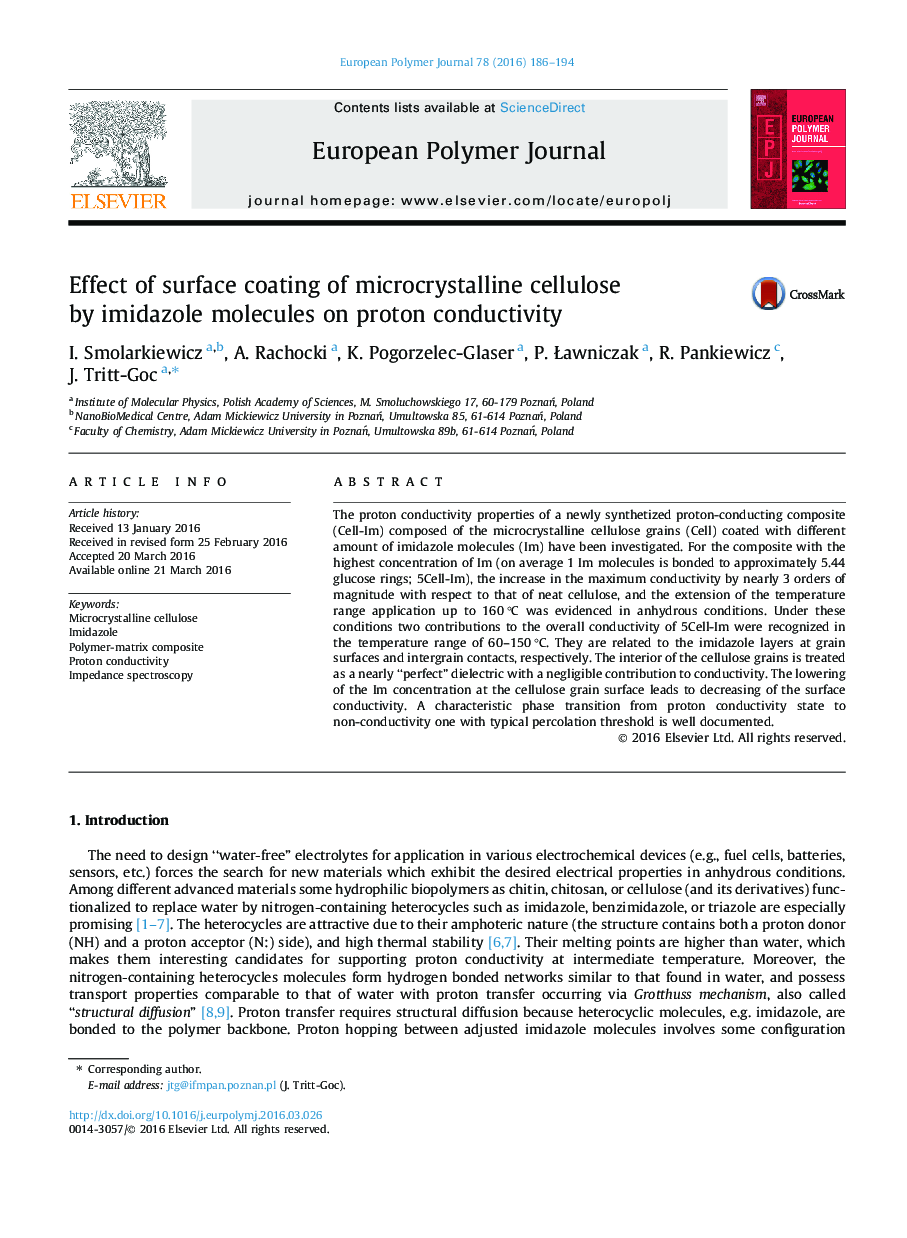| کد مقاله | کد نشریه | سال انتشار | مقاله انگلیسی | نسخه تمام متن |
|---|---|---|---|---|
| 1394660 | 1501357 | 2016 | 9 صفحه PDF | دانلود رایگان |
• Proton-conducting cellulose doped with imidazole was synthetized.
• Two contributions to the conductivity were distinguished.
• The percolation nature of the electrical conductivity was identified.
The proton conductivity properties of a newly synthetized proton-conducting composite (Cell-Im) composed of the microcrystalline cellulose grains (Cell) coated with different amount of imidazole molecules (Im) have been investigated. For the composite with the highest concentration of Im (on average 1 Im molecules is bonded to approximately 5.44 glucose rings; 5Cell-Im), the increase in the maximum conductivity by nearly 3 orders of magnitude with respect to that of neat cellulose, and the extension of the temperature range application up to 160 °C was evidenced in anhydrous conditions. Under these conditions two contributions to the overall conductivity of 5Cell-Im were recognized in the temperature range of 60–150 °C. They are related to the imidazole layers at grain surfaces and intergrain contacts, respectively. The interior of the cellulose grains is treated as a nearly “perfect” dielectric with a negligible contribution to conductivity. The lowering of the Im concentration at the cellulose grain surface leads to decreasing of the surface conductivity. A characteristic phase transition from proton conductivity state to non-conductivity one with typical percolation threshold is well documented.
Figure optionsDownload as PowerPoint slide
Journal: European Polymer Journal - Volume 78, May 2016, Pages 186–194
